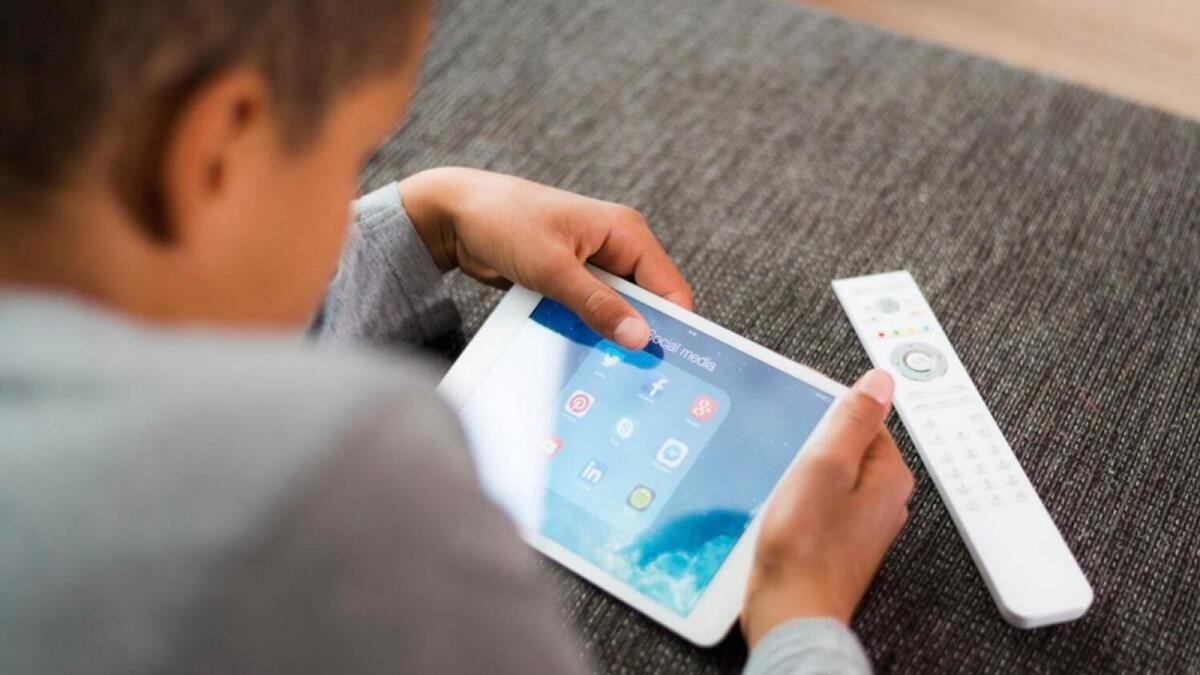During summer holidays, many children spend a significant amount of time at home, engaging with digital gadgets, leading to an increase in vision-related and other health issues. The analysis conducted by Khaleej Times revealed that children’s screen time is usually regulated by school schedules and extracurricular activities during the academic year. However, during the holidays, parents struggle to limit their children’s use of digital devices. This increased screen time has led to health problems for many young individuals.
A fifth-grade student, Akhlaq Salem, started experiencing persistent headaches and sleep difficulties as his vacation began. With both parents working, Akhlaq is often left alone with his siblings at home. His excessive screen time, watching cartoons on his tablet for 7 to 8 hours a day, was identified as the cause of his health issues. Similarly, 12-year-old Ali from Iraq was diagnosed with Myopia due to prolonged screen time while playing video games. Doctors have seen a rise in vision problems linked to extended screen use during summer breaks.
Dr Gayathri Mohan from Thumbay University Hospital highlighted the multifaceted concerns of excessive screen time for children. It not only affects ocular health but also impacts cognitive, social, linguistic, and mental well-being. Excessive screen time reduces face-to-face interactions necessary for communication skills, empathy, and relationships. This can also affect linguistic skills as verbal communication opportunities decrease with more screen time, hindering language development.
Mental health is another area of concern as studies have shown a connection between excessive screen time and higher risks of anxiety, depression, and attention disorders in children. Poor academic performance has also been associated with prolonged screen exposure due to reduced time on educational activities, disrupted sleep patterns from blue light exposure, and decreased attention spans. Symptoms of digital eye strain include eye discomfort, blurred vision, dry or itchy eyes, headaches, and neck and shoulder pain.
To manage screen time and reduce digital eye strain, doctors recommend setting daily limits on screen use, especially for non-educational purposes. Encouraging regular breaks using the 20-20-20 rule, creating a comfortable environment with proper lighting, promoting outdoor activities, and using blue light filters on devices are some recommendations. Additionally, children should wear sunglasses with UV protection when outside. Doctors also suggest blinking exercises, palming, shifting focus from near to distant objects, gentle eye rolling, and maintaining proper posture to reduce eye fatigue and strain.
In conclusion, parents need to be mindful of the impact excessive screen time can have on their children’s health and well-being. By implementing strategies to manage screen time, promote outdoor activities, and protect eye health, parents can help reduce the risks associated with prolonged screen exposure. Encouraging a balance between screen time and other activities can lead to better overall health outcomes for children during the summer holidays.





















